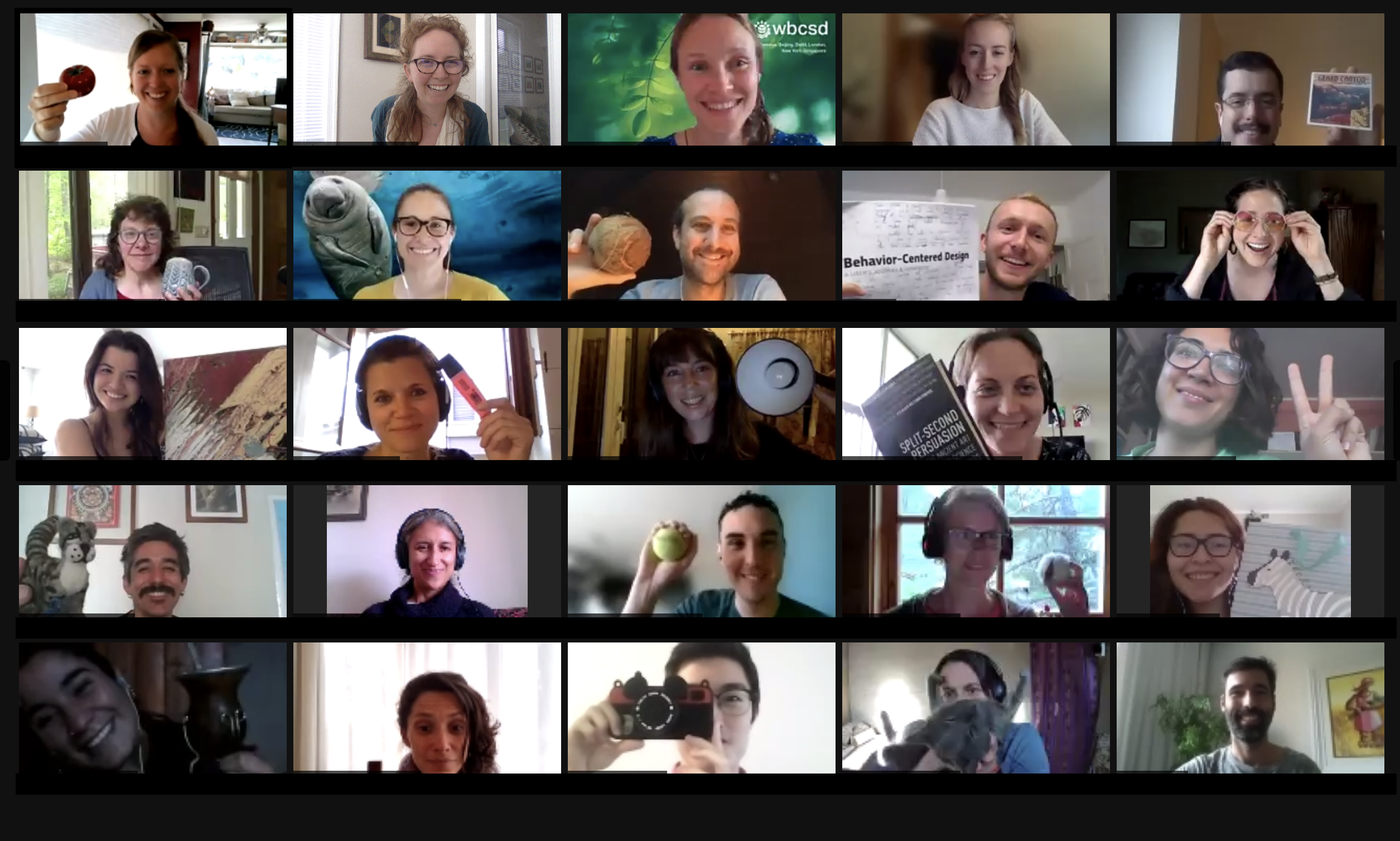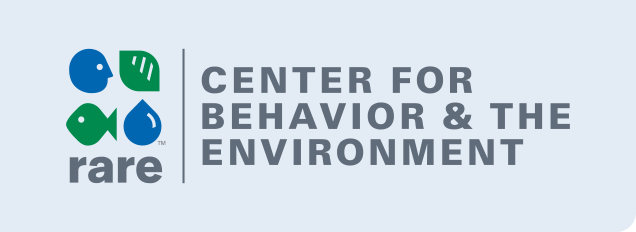
Environmental and conservation organizations have deep expertise in the natural sciences. But if environmental challenges are behavioral challenges, we need a better understanding of what motivates people to change. Join us for an interactive behavior-centered design training, and gain tools and techniques for encouraging more sustainable behaviors.
About the training
Led by trainers from the Center for Behavior & the Environment, we’ll explore the steps of behavior-centered design, including framing an environmental challenge, gaining empathy with your target audience, connecting research data to behavioral insights, ideation and prototyping, and measuring the success of your behavioral intervention. Along the way, we will discuss principles of diversity, equity, and inclusion that enhance our behavior change work. You will gain a basic understanding of the levers of behavior change with which we design environmental solutions, such as emotional appeals, social influences, and choice architecture. We then begin to apply the tools of behavior-centered design to a specific case study as a team. This is a highly interactive workshop geared toward building expertise in behavioral science concepts and principles and spending meaningful time practicing and applying the insights to your own work. You will leave with an understanding of the behavior-centered design approach and ideas for applying it to your own work.
Important note on our virtual offering:
To make the best use of the virtual format and of our time together, this training includes pre-work assignments as well as short assignments after each session to provide an opportunity to apply the material we cover in real-time. In order to get the most out of your experience, we recommend that you reserve the 3 days of the workshop as if you were attending in person. We will also offer 1:1 coaching sessions after the training for you to get feedback from our team about your behavior change challenge. There will be two timezone options for live sessions: one for North/South America, Europe, and Africa, and another one for Asia Pacific. The six sessions will be sequential, so all of them are required.
Training Costs:
For our signature Behavior Centered Design for the Environment training, we offer all applicants the freedom to opt into a course fee tier they feel is appropriate based on their personal and professional capacity. To make this program as accessible as possible for practitioners who lack the means to attend, we offer three tiers of course fees:
Course Fee $525
Discounted $200
Fee Waiver $0
The discounted fee and fee waiver tiers are aimed to ease the costs for those from small non-profit organizations, those from the Global South, and those who have limited access to professional development funds. Requests for fee waivers are determined on an individual basis. We take into account financial need, the potential for impact, and access to opportunity, as well as overall cohort diversity.
You should apply to the course fee tier you can afford without burdening yourself or your organization. In order to keep our training offerings sustainable, we are able to offer more invitations to applicants who apply under the full tuition tier. If you have any questions about which tier to apply to please write to behavior@rare.org.
| Type | Rate | Coupon Code |
|---|---|---|
| Regular Rate | $525.00 | N/A |
| Discounted Rate | $200 | BCD-OCT24 BCD-APR25 |
| Fee Waiver | $0 | Submit request here |
-
DAY 1 DAY 1 Session 1 (10:00 – 11:30 AM) - Introduction to Behavior – Centered Design
- Framing the challenge
- Empathize Pt. 1: Methods
Assignment: Review Frame and Empathize modules
Session 2 (2:00 PM – 3:30 PM) - Empathize Pt. 2: Interviews
- Levers of behavior change
- Hypothesis on behavioral motivations and barriers
Assignment: Review Map and Ideate modules
DAY 2 DAY 2 Session 3 (10:00 – 11:30 AM) - Overview of behavioral strategies
- Solution ideation
- Designing prototypes
Assignment: Review Prototype and Messaging modules
Session 4 (2:00 PM – 3:30 PM) - Messaging strategies
- Testing and refining solutions
- Sharing solutions
Assignment: Review Test, Launch, and Assess modules
DAY 3 DAY 3 Session 5 (10:00 – 11:30 AM) - Testing your solution
- Creating a launch plan
- Assessing and evaluating behavior change
Assignment: Identify a behavior change challenge you want to work on.
Session 6 (2:00 PM – 3:30 PM) - Starting your own BCD journey
- Q&A
- Close and next steps
Post-training: Sign up for 1:1 coaching sessions with our team
-
We offer 1:1 coaching sessions after the training for you to get feedback from our team about your behavior change challenge. These hour-long sessions can be on any topic of the attendees’ choice.
Participant
Behavior-Centered Design for the Environment Virtual Training
Participant
Behavior-Centered Design for the Environment Virtual Training

